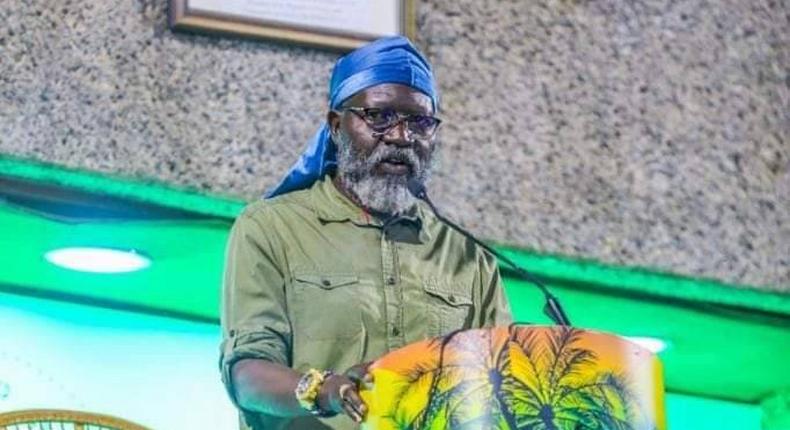Prof. George Wajackoyah, a presidential candidate for the Roots Party, unveiled his much awaited manifesto on Thursday at a ceremony held at the Kenyatta International Conference Centre (KICC).
The 10-point manifesto outlined the top official of the Roots Party’s plans for the country, should he win the August 9 general election.
The legalization of marijuana is the first point in Wajackoyah’s manifesto, while commercial snake cultivation is the second.
The leader of the Roots Party, whose slogan is “Tingiza Mti,” claims that money made from marijuana cultivation and exportation may be used to pay off Kenya’s mounting debt.
“If we can grow Bangi in Nyeri alone, each Kenyan could get a dividend cheque of Ksh.200, 000 every year from the sale of Bangi. If we grew Bangi in Nyeri alone, we would build 2 expressways in each county in Kenya,” reads Wajackoyah’s manifesto in part.
“If we grew bangi in Nyeri alone, Kenya will have 10 percent of IMF’s total cash reserves. In short we will never have to borrow a single coin in future.”
Wajackoyah also believes that Kenya may profit from the lucrative anti-venom industry by raising poisonous snakes and extracting their toxins, which will allow the country to produce antidotes domestically for export.
“If we did snake farming Kenya, each venomous snake farmer will earn an average of $6,000 or Shs.600,000 per vial of anti-venom. For example a cobra farmer will make $6,300 from a vial of cobra anti venom.
If we harvest Black mamba anti-venom a Kenyan farmer will make $5,300 per vial,” says Wajackoyah.
Among the other issues on the manifesto are:
- Exporting dog meat.
- Executing corrupt government officials in public.
- Shutting down the Standard Gauge Railway which he says is a symbol of Chinese colonisation.
- Introducing a 4-day work week.
- Suspending parts of the constitution that ‘do not work’.
- Shifting Kenya’s Capital from Nairobi to Isiolo since the Eastern town is more centrically located and can be accessed from all parts of Kenya comfortably.
- Creating 8 states which will be governed by their own federal governments
- Deporting idle foreigners from Kenya.



















